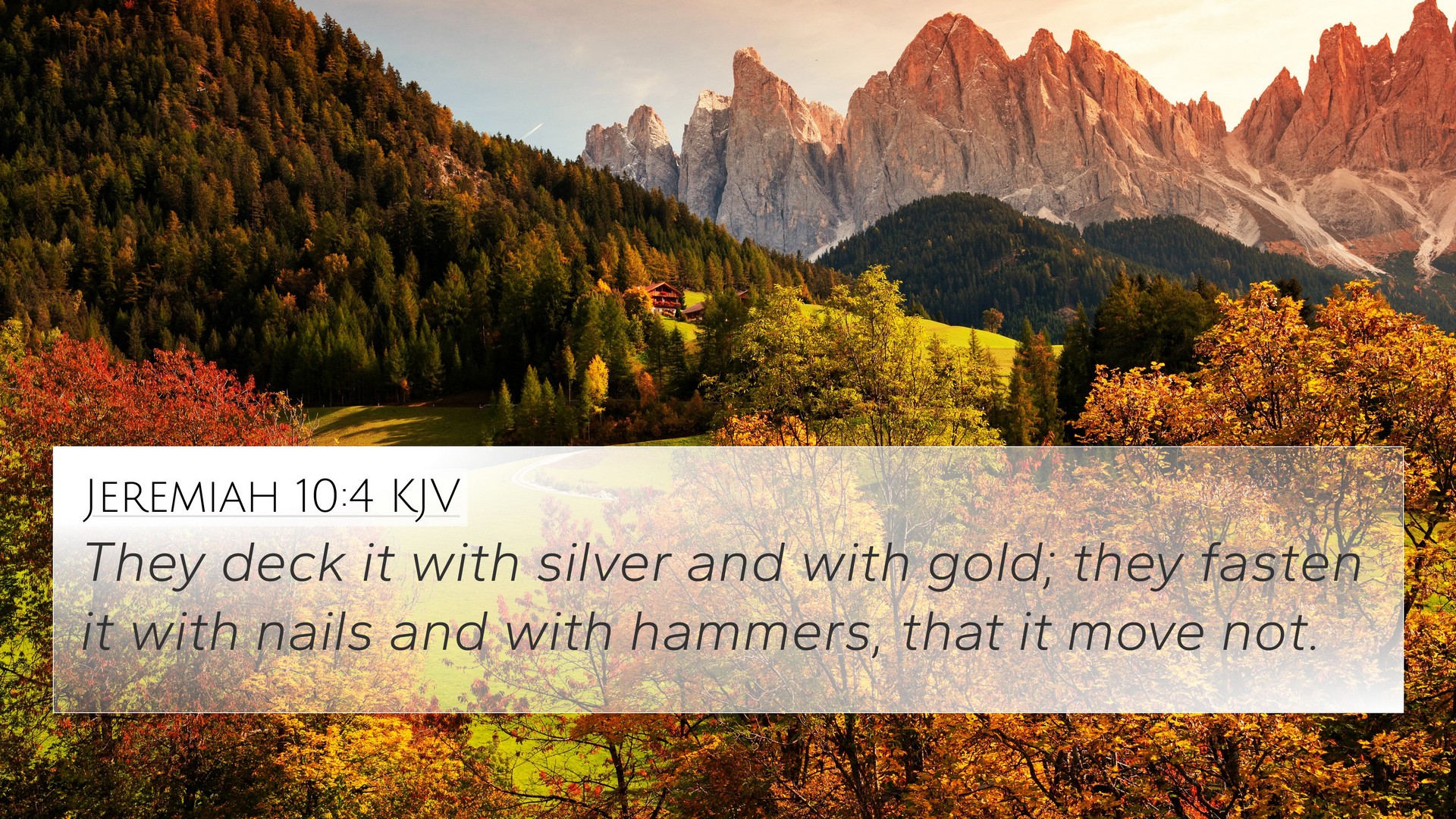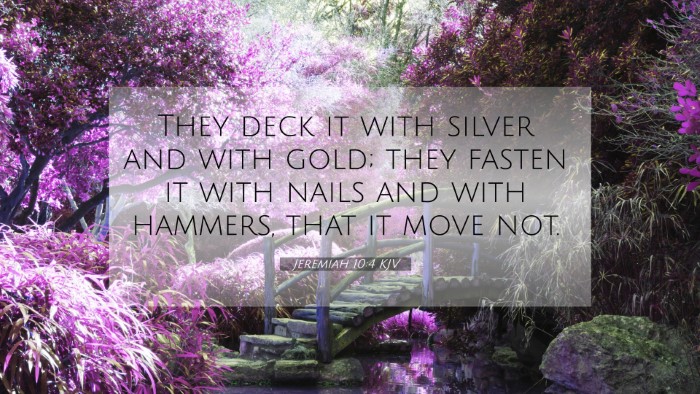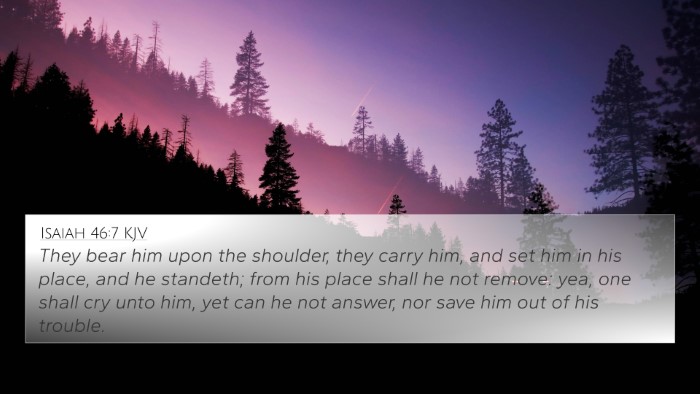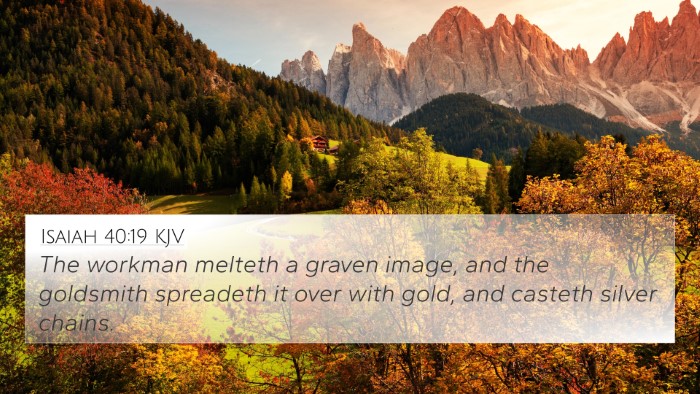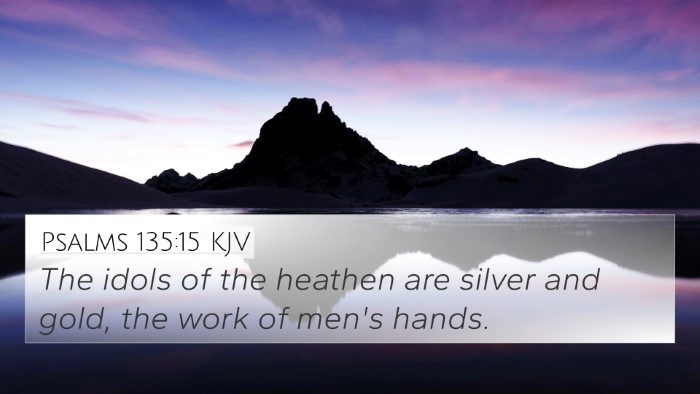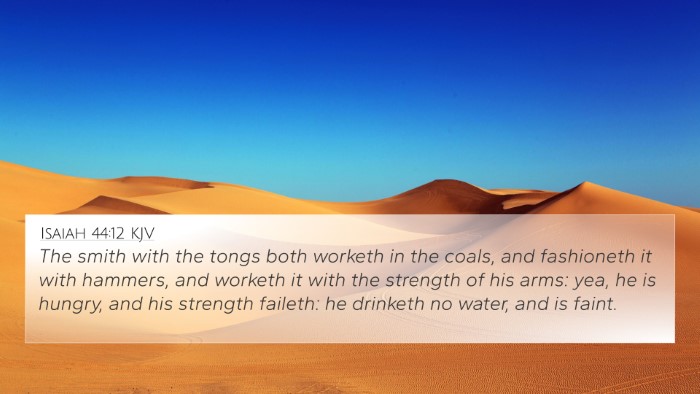Understanding Jeremiah 10:4
Jeremiah 10:4 states: "They adorn it with silver and gold; they fasten it with nails and hammers so that it will not totter." This verse addresses the practices of idol-making among the people of Israel, highlighting the futility and absurdity of worshipping man-made objects.
Meaning and Interpretations
The verse reflects the profound human tendency to create tangible representations of divinity, despite the inefficacy of such idols. Public domain commentators provide varied insights into the significance of this scripture:
-
Matthew Henry:
Henry emphasizes the senselessness of idolatry, noting that the elaborate and costly adornment of idols only highlights the foolishness of placing trust in created things rather than the Creator. He underscores that true belief should be directed toward God, who is alive and dynamic, not to inanimate objects.
-
Albert Barnes:
Barnes focuses on the physical processes of idol-making, asserting that this labor and craftsmanship reveal human effort directed toward something powerless. He points out the contradiction in investing time and resources into something that provides no spiritual sustenance or guidance.
-
Adam Clarke:
Clarke's commentary explores the ritualistic aspects and the cultural context of idolatry during Jeremiah's time. He argues that the worship of idols is a reflection of deeper spiritual neglect and a turning away from God’s commands, suggesting that such practices are a direct result of misplaced faith.
Thematic Connections and Cross-References
Jeremiah 10:4 shares thematic connections with several other scriptures that address idolatry and the sovereignty of God. Notably:
- Isaiah 40:18-20: Questions the comparison of God to idols and asserts His uniqueness.
- Psalms 115:4-8: A declaration of the impotence of idols and a contrast to the living God.
- 1 Corinthians 10:20-21: Discusses the sacrificial nature of idol worship and its incompatibility with devotion to God.
- Exodus 20:4-5: The second commandment that prohibits the making of graven images.
- Romans 1:22-23: Highlights the folly of exchanging the glory of God for images.
- Habakkuk 2:18-19: Discusses the futility of idols and their inability to speak or deliver.
- Matthew 6:24: Explains the impossibility of serving both God and idols (materialism).
Practical Applications
The insights derived from Jeremiah 10:4 encourage believers to reflect on their priorities and the objects of their worship:
- Awareness of Idolatry: Identify modern equivalents of idolatry – careers, possessions, or even relationships that take precedence over God.
- Redirecting Trust: Foster a reliance on God’s power and presence in life’s challenges rather than physical supports or false assurances.
- Engaging in Spiritual Practices: Embrace worship and prayer as ways to cultivate a personal relationship with the Creator.
Further Reflections
Reflecting on Jeremiah 10:4 within the broader biblical narrative promotes an understanding of:
- The consistent warning against idolatry across scripture.
- The call for believers to worship in truth and spirit.
- The necessity of examining cultural influences that may lead to false worship.
Conclusion
Jeremiah 10:4 serves as a vital reminder of the need for authentic worship rooted in the acknowledgment of God’s supremacy over all creations. It encourages a holistic approach to faith that resists the allure of idols, urging believers to seek a deeper, more meaningful relationship with God.
Recommended Bible Study Tools
- Bible concordance for tracing word meanings and themes.
- Bible cross-reference guide for exploring connections between scriptural texts.
- Comprehensive Bible cross-reference materials for in-depth study.
- Cross-reference Bible study methods for systematic exploration of themes.
